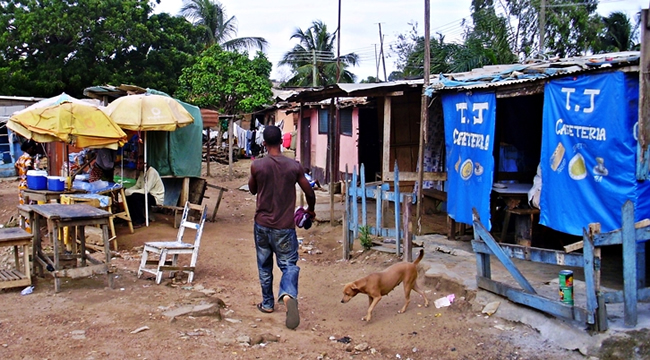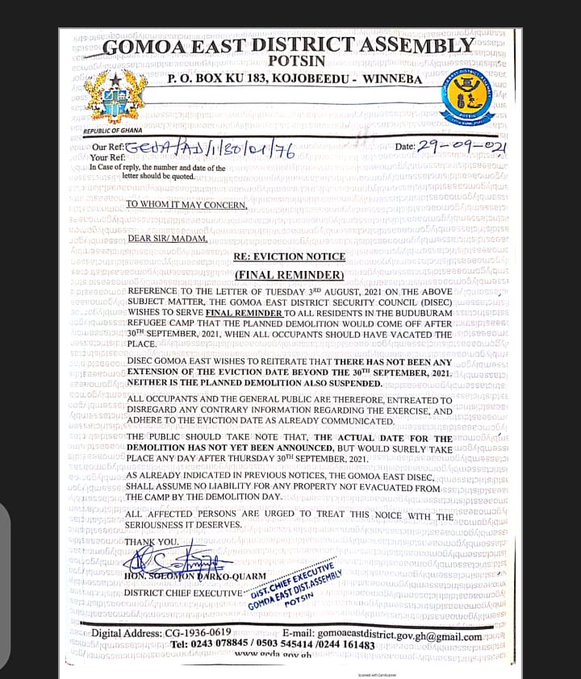
Thousands of Liberians living in the Buduburam refugee camp in Ghana’s central region are opposing their eviction and demolition of the camp.
The Buduburam camp was established in 1990 to accommodate refugees who fled the Liberian war.
Most of the inhabitants failed to take advantage of a repatriation programme designed by the UNHCR and the Ghana Refugee board to return home when the country returned to civilian rule.
Ghanaian authorities say the camp, which was decommissioned as a refugee base in June 2010, has become a settlement and a hideout for social deviants, including alleged robbery gangs.

Demand from chiefs
The District Chief Executive for the area Solomon Darko-Quarm said the demolition of the camp was in response to a request by the chiefs in the community over the increasing criminal acts there, with the camp being turned into an abode for suspected criminals.
“The Buduburam Camp has become an albatross around the neck of the nation as it has become a den for many suspected criminals engaged in many criminal activities across the country”, he said.
According to him, the demolition would also pave the way to redevelop the area to befit the district’s status as the gateway to the Central Region.
“It has become a fast-growing community which needs social and economic amenities to befit its status,” Darko-Quarm added.
But the inhabitants who are mostly Liberian nationals have vowed to oppose the demolition.
Complaints of rendering people homeless
The residents said thousands of people will be displaced if the demolition goes on adding that they have nowhere to go and will become homeless.
The Leader of the Refugee Camp residents, Dennis Graham said, they have written several letters to all the appropriate offices in a bid to stop the demolition but all proved futile.
But local authorities say they will not bow to pressure from the inhabitants to stop the demolition.
Meanwhile the acting head of Ghana’s Refugee Board Tetteh Padi has told local media that some 400 refugees at the Buduburam camp will be relocated ahead of the demolition exercise.
These are individuals according to him were exempted from the Cessation clause which was implemented in 2012 after the United Nations withdrew its recognition of the area as a camp for refugees.
Padi was quoted by local news channel Joy news as saying that “there was also the opportunity for some of them who felt that they have peculiar circumstances for which reason they should remain refugees.
Well over 3000 households applied for it, but about 350 households were granted exemption from the Cessation clause.”
Source: africafeeds.com























